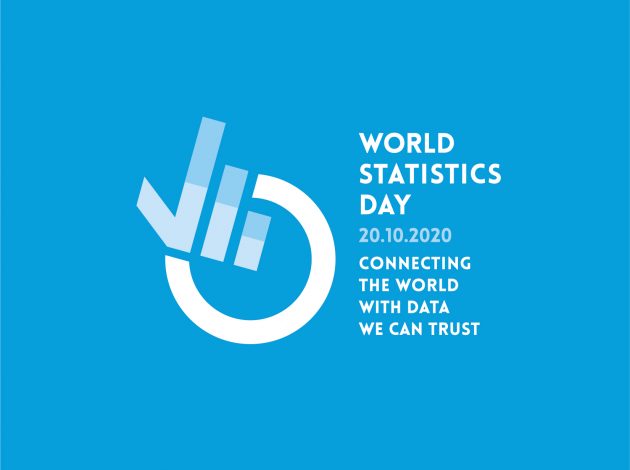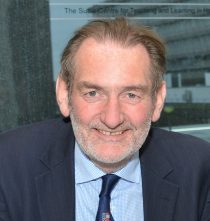It’s World Statistics Day again and this time the numbers really count

In his second blog post for World Statistics Day, National Statistician, Professor Sir Ian Diamond, takes a look at how the UK’s statisticians have risen to the challenges presented by the COVID-19 pandemic and considers how all official statistics need to reflect the experiences of the whole population.
Statisticians do not, by nature, shout about their importance. But, once every five years, the United Nations designates a day to reflect on the “trust, authoritative data, innovation and the public good” created by the world’s national statistical systems. This year’s timing is particularly apt as countries across the world seek the best evidence to underpin their pandemic responses.
I am in awe of how, as a community, the UK’s statisticians have risen to the challenges presented by the pandemic. They have worked at pace to produce as close to real time information as possible on infections and, tragically, COVID-19 associated deaths. They have measured the impact on businesses and household finances, and the sentiment and behaviours of the public at large.
Big surveys which would ordinarily have taken months of planning have been stood up in a matter of days to help the government understand the prevalence of the virus, the success of its interventions, and the impact of these on both the economy and the well-being of all parts of our population.
Yes, there have been some controversies over the production and interpretation of some statistics. Important numbers will always be questioned and debated, and it is a strength of our system that whenever necessary they will be revised or improved. Our independent statistics regulators have been swift to act when there have been questions about how numbers have been used.
But whilst the pandemic has been the focus for almost all of us, we must not lose sight of all the other key questions which we face as a nation. In recent months, the Office for National Statistics (ONS) has been ambitious, harnessing the desire for better evidence in all aspects of our society and economy and is driving through radical change in how official statistics are produced and used. My aim is to increase their relevance, help all of us understand the world around us and enable our governments to make truly evidence-based interventions.
Nations with independent statistical institutions like the UK’s ONS benefit from data produced free from political influence and provide the best evidence to inform our futures. With the supply and importance of information increasing rapidly, our biggest challenge is to take our statistics off the page and find ways to listen and connect with people.
The pandemic in Europe and North America have also highlighted the inequalities faced by those from Black, Asian and Minority Ethnic groups. Here in the UK our data has revealed the greater risk of death faced by BAME people and the mediating influence of disadvantage.
This is a salutary reminder of how all official statistics need to reflect the experiences of the whole population, something we have committed to firmly in our new strategy. That is also a strong theme in the forthcoming 2021 England and Wales Census. For the first time we will include voluntary questions on sexual orientation and gender identity. By doing so we are responding to a clear demand for better information to inform genuinely inclusive policymaking.
Census information is essential to the planning of critical services for all – from schools to hospitals to roads. But what is also essential is periodically to assess our method of doing things and consider whether there are new ways that are more efficient. In this case, it is potentially linking census data with other administrative data in order to understand our society and economy much better and hence to improve services for citizens and the allocation of public resources. The reuse of such data could also lead to a reduction in collection costs and the burden placed on the public to provide survey data. These administrative data could also increase the frequency, timeliness and range of data outputs, providing us with an ever-evolving picture of our society rather than one snapshot every ten years.
Alongside next year’s census we will also compare the alternative data we have gathered from government departments and other surveys. This will help us to see how these and other sources compare with the data gathered by the huge once-in-a-decade census operation. I must be absolutely clear, however, that we will only replace the census with something that is demonstrably better.
For now, with 2021 almost upon us, I’m excited about the invaluable picture of our nation that this first digital by default survey will reveal. But I’m also excited about the huge opportunity we have to reap the benefits of the previously unimaginable sources that the data revolution has created.
With our independence underwritten by Parliament, our ability to deliver backed by new funding from Government and the relevance of work increasingly recognised by the public, our mission of being widely seen as an essential public service is one we are determined to complete by the time World Statistics Day comes around again.

Sir Ian Diamond, National Statistician